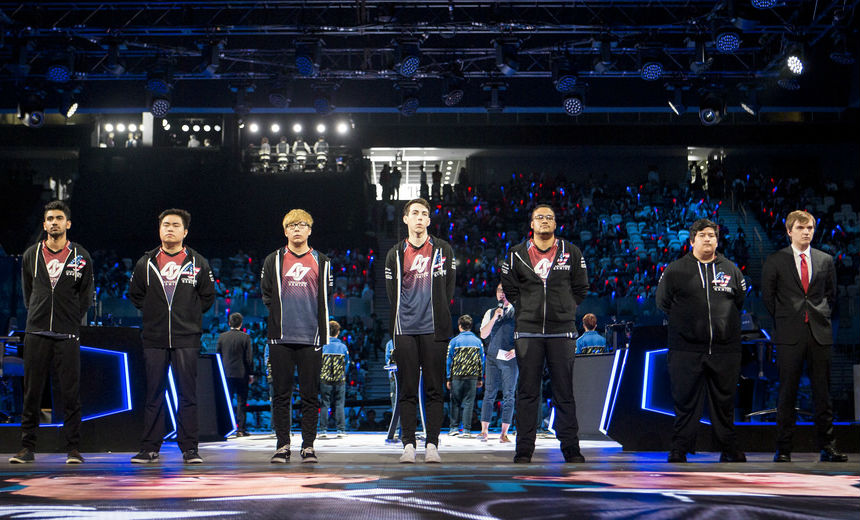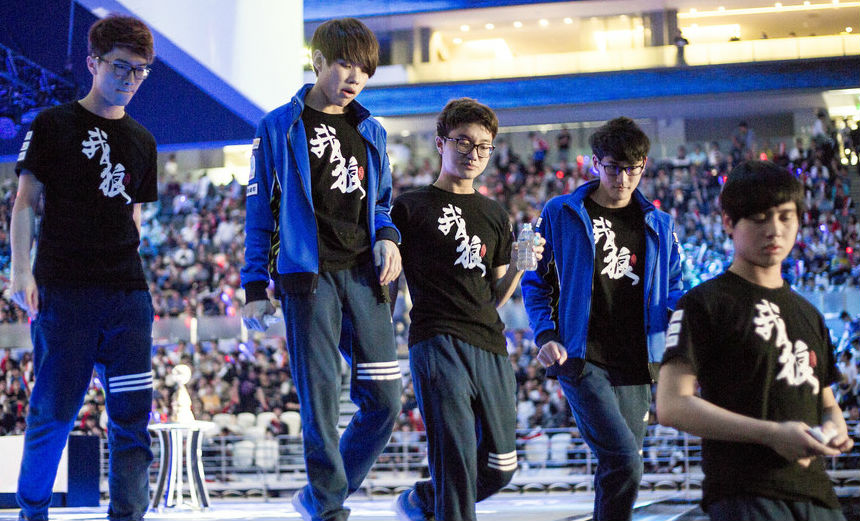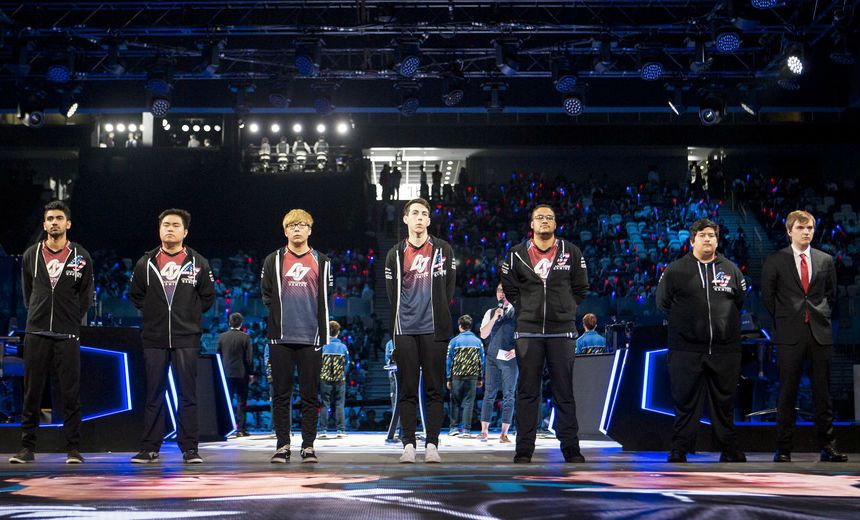
Redemption.
Counter Logic Gaming will go up against SK Telecom T1 in the finals.
Wait, what now? A North American team in the grand finals of a Riot-organised tournament? Has that ever happened before? Never.
Sure, NA teams have enjoyed a decent measure of success at IEM events, right? Yes, but those events never featured all the best teams in the world.
MSI is a different monster. It features SK Telecom T1, largely regarded as the best League of Legends franchise in history, boasting two world championships.
Royal Never Give Up has an incredible teamfighting presence, led by Korean superstar and world champion support Cho “Mata” Se-hyeong.
G2 Esports came into the tournament by crushing the European LCS with their crisp high-risk, high-reward play.
Flash Wolves destroyed the LMS gauntlet, not dropping a single game.
CLG, on the other hand, were not even the North American favorite to reach the Midseason Invitational.
And yet they pulled through the group stage at MSI, landing in second place and facing off against the Flash Wolves in the semi-finals, a team they had beaten twice the week before.
Dream scenario right?
Indeed.
The first game started off with a very questionable draft from the Flash Wolves. Following the first pick Ryze from CLG, they picked Azir and Soraka, handing over Ekko and Kindred to their adversaries. Apparently scared of the Ryze top Azir mid combo, FW wanted to steal away Zaqueri “Aphromoo” Black’s Soraka. Letting through Ekko, Kindred and Ryze on patch 6.8 is a sin that cannot be committed. These three are arguably the strongest champions on each role with amazing mid to late-game scaling and damage. Heck, even throw in some CC in there with slows, stuns and snares. Even the plan of stealing away the Soraka did not work, as Aphromoo still landed on a very comfortable champion in Bard.
CLG made good of their dream draft, taking Game 1 convincingly, never looking back after securing first blood on Li-Hong “MMD” Yu 12 minutes in. Their macro play was crisp, not allowing FW a shred of a way back in before ending it in 31 minutes.
To the Flash Wolves’ credit, they never allowed such a situation to reiterate itself, instead choosing to focus their bans on Soraka and Bard to give themselves better options with their first two picks. When Ryze and Kindred were available to them, they took them.

A developing trend as the series wove on was the mid lane champion pools. Both teams had very definitive opinions about mages, going for Ryze and Azir every single time. With such focus on these champions, you would think them to be equal in strength, right? Not so, as throughout the series, Ryze won all four games, posting a 6.8 KDA to the weak 1.36 of his counterpart.
Another interesting adaptation was the rise of the ranged supports. Alistar bans in every single game and both teams wanting their duo lane to have a strong laning presence led to a huge focus on ranged supports such as Bard, Soraka, Karma and Janna. Even Sona made a return to the pro stage.
After Game 1’s attempt at taking away Aphromoo’s champion in Soraka only to lose to his fabled Bard, FW attempted something else. After the CLG ban on Soraka, they banned Bard and brought out the Karma support to play a heavy poke lane with Ezreal, leaving CLG to pick Janna, a very difficult champion to play into poke.
Following their success in Game 2, FW ran the same strategy, leaving CLG wondering. They answered with another strange pick, the Sona that Aphromoo hadn’t played since the 2013 Spring Split. Barring some great stalling and subsequent teamfighting by CLG, Flash Wolves' gambit would be successful as they annihilated CLG in the laning phase all over the map. They simply needed a bit more engage from their marksman than a Varus ultimate, which was only slightly successful once in a mid-game teamfight, giving them a 4 for 2 win from which they could not secure anything else than the kills themselves. Their inability to convert opportunities to objectives handed CLG the victory, sending the series to a decisive Game 4
Backs against the wall, Flash Wolves adapted and switched out the Varus for a Sivir, getting the engage they thought they would need to close out the game, banking on Hao-Xuan “Karsa” Hong’s ability to completely dominate like in the previous game. He was unable to do so as CLG also adapted, flashing earlier when he showed up to gank to completely nullify his impact on Kindred. Wen-An “NL” Hsiung did not follow up on the plan either, looking rather uncomfortable on Sivir, having very little impact with a very lackluster scoreline of 1/2/1.
Even with everything the Flash Wolves threw at them in the pick and ban phase, CLG kept calm and adapted. Their in-game prowess overcame it all. Even Game 3, a game they should have by all rights lost, being outplayed at every turn in the early game, was won simply by having better shotcalling, teamfighting and vision control.
By beating the Flash Wolves in four games, CLG gain the right of facing off against SK Telecom T1 in the finals.
(All images courtesy of Riot esports Flickr)

